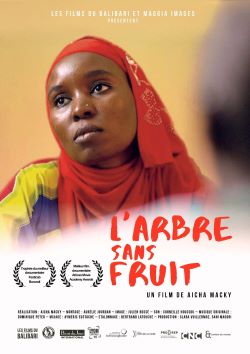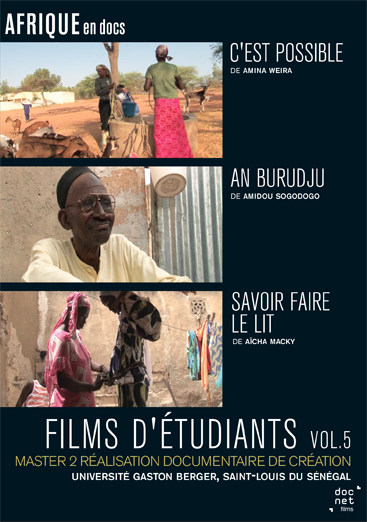Infertility, a novel and a film
 In Africa, infertility is often not only painful on a personal level, but it is seen as a big problem by society as a whole, starting with the family. When a couple is childless, people automatically assume it is the woman who is to blame. In societies where polygamy exists, the woman has to accept that her husband will take a second wife to ensure his progeniture.
In Africa, infertility is often not only painful on a personal level, but it is seen as a big problem by society as a whole, starting with the family. When a couple is childless, people automatically assume it is the woman who is to blame. In societies where polygamy exists, the woman has to accept that her husband will take a second wife to ensure his progeniture.
This sensitive and often taboo issue is not only examined in academic publications (see below), it is also being explored in literature and film. A novel from Nigeria and a personal documentary film from Niger, both created by women, explore the consequences of infertility.
The novel
The debut novel Stay with me, by Ayòbámi Adébáyò, a New York Times Notable Book, is about the breakdown of a young married couple that is burdened by the demands of their family who hold traditional (Yoruba) views on motherhood and masculinity in the contemporary society of Nigeria. The story is set in Ilesa, in the state of Osun, beginning during the political turbulence of the 1980s and moving through to 2008. Yejide and Akin have met at a student protest march and after four years of marriage she still hasn’t become pregnant. The story is told mostly from the point of view of Yejide, a vividly portrayed and memorable character. Pressed by her mother-in-law, she has tried everything - from pilgrimages to medical consultations. When they married, both Yejide and Akin rejected polygamy, but Akin is forced by their relatives to take a second wife. When Yejide unexpectedly does get pregnant, her children appear to have the potentially deadly sickle cell disease and Yejide comes to realize the extent of Akin's betrayal. The extra theme of sickle cell disease might seem a lot for one novel, until one realizes that Nigeria is the country most affected by this disease in the world (the writer is herself a carrier of the sickle cell gene). Despite all the suffering described, the book nowhere gets larmoyant.
The film
In the documentary film L'Arbre sans fruit (The Fruitless Tree), Aïcha Elhadj Macky explores the suffering of married women without children. Based on her personal story, speaking openly as a childless woman among mothers, she breaks a taboo in Niger. The director thinks of her mother who died in childbirth and addresses questions to her as she tries to understand her own situation and that of women in general in her country. The central question posed is, is it possible to be a woman without being a mother in Niger? With this film, the director gives a voice to women who have been marginalized and discriminated against for being childless. The film has won many prizes, including the Best Documentary Award at the Africa Movie Academy Awards (AMAA) in 2016.
Aïcha Macky previously achieved a subtle portrait of how women in Senegal prepare their bodies for marriage, an ‘art of seduction’ unknown in the country of her birth, Niger. The short film Savoir faire le lit, part of a compilation DVD, is also available in the library.
 To find more (academic) publications on infertility in Africa, use the African Studies Thesaurus subject term ‘infertility’:
To find more (academic) publications on infertility in Africa, use the African Studies Thesaurus subject term ‘infertility’:
Elvire Eijkman

